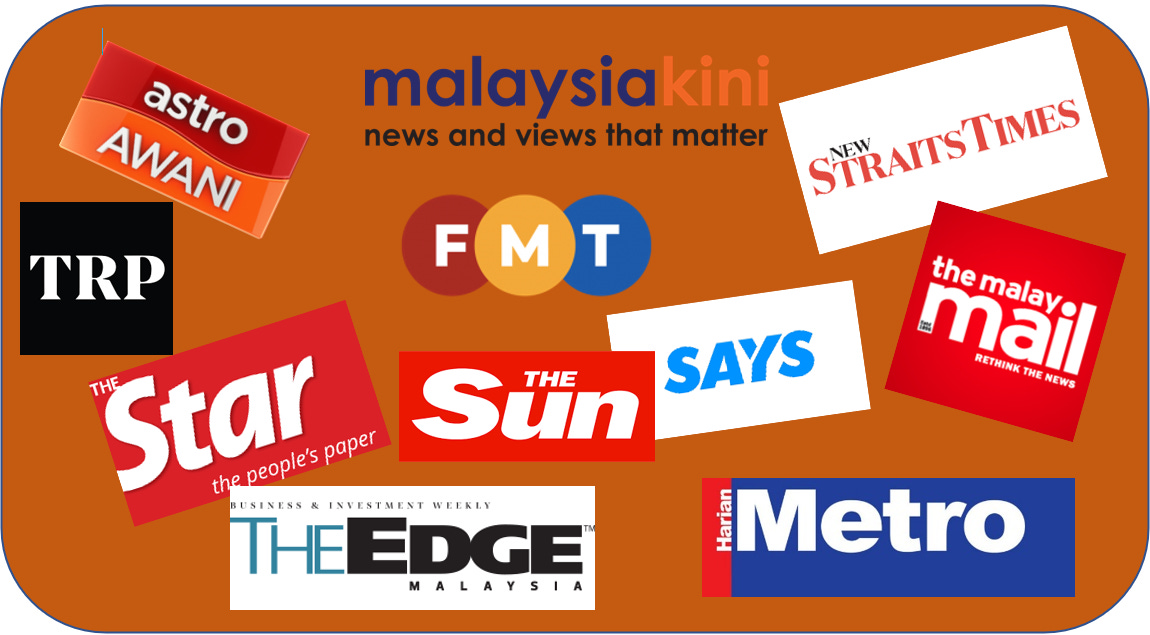How much integrity exists within the Malaysian Media?
Looking at online news portals
The appointment of prominent media figure and journalist Wong Chun Wai as chairman of the government owned media organization Bernama, has come with some controversy. Wong was seen as a propagandist during his tenure at The Star. As an advisor to the Malaysian Anti-Corruption Commission, Wong was in close proximity to corruption. Wong’s new role will be involved in orchestrating narratives, which will be picked up by other media outlets across the country.
This brings up the question about how much integrity today, exists within Malaysian online news portals?
Online news portals developed out of the 1998 ‘reformasi’ movement, when Harakah, and later ‘Free Anwar’ (now defunct) became the mouthpieces of the opposition politics. In 1999, Malaysiakini was formed taking a pro-opposition editorial line, and bringing investigative journalism to the country’s media. Malaysiakini was the pioneer of what became known as the alternative media.
Malaysia’s media has undergone radical change over the last decade. The government media has lost much of the direct influence that it had, where now most “news” is disseminated by a large and fragmented sea of on-line news portals. Today, the majority of Malaysians actually pick up their news through mobile phone chat groups, where news portal articles are shared.
The definition of ‘news’, would refer to reports, and Op Eds which are the most popular type of articles read today for the ‘politically aware’ public.
Issues interfering with media integrity today
There are a wide range of issues that infringe upon open, honest and factual reporting and analysis in the Malaysian media today.
Institutional restrictions
Over the last few months, a number of news portals have been spasmodically blocked through internet service providers. These news portals like Malaysia Now run articles critical towards government decisions and actions.
Online news portals have found it frustrating, as they have not infringed or broken any laws or government guidelines. Malaysian Communications and Multimedia Corporation (MCMC) denies blocking any news portal sites, making blockage issues almost impossible to rectify.
In addition, government linked corporations (GLCs) are filing letters of demand (LOD) for alleged defamation to any news portal and journalists who report on their activities, usually those involved in government land grabs. News portals and journalists usually end up in agreements, where they cannot report on the corporation’s activities. Due to shoe-string budgets and poor financial resources of these news portals, they have little choice but comply. This is becoming a widespread method to silence media criticism.
Local news portals are very cooperative with the executive government. Ministers through their political or media secretaries liaise with news portals to request the removal of content they disagree with. Its not uncommon to see articles taken down soon after they are posted, without much question by the editors.
Self-censorship
As a consequence, news portals in Malaysia are very conservative, and practice prudent self-censorship to keep them away from any issues with authorities and legal suits.
This has stalled investigative journalism in Malaysia, as a defamation award against a journalist could range between RM250-350K, and lead to bankruptcy. Self-censorship has turned most local news portals into outlets that use articles from the state run media Bernama, press releases, reports from government press conferences, and other news in an uncritical manner. News portals have more latitude on issues that don’t ruffle the sensitivities of the government.
Pushing covert editorial lines
A large percentage of news portals have been established to push particular political agendas. A few have been set up to push the agendas of individual politicians. The last state elections gave a great indication of which news portal pushed what political line.
These portals have carved out their own readers. For example, Malaysia Now caters for those who are not pro-Pakatan Harapan and want to see the other side of issues. Similarweb indicates the site obtains around 2 million reads per month. This compares with Malaysiakini, which is pro-Pakatan Harapan, that gets around 22 million reads per month. There are 50 plus other news portals in between.
The journalists themselves
The majority of journalists operate not much above reporter level. They usually follow the editorial lines they are given. The Malay language news portal, Utuasn Malaysia, a reconstitution of the old Utusan, has encouraged its staff to undertake investigative stories about the failing of bureaucracy in Malaysia.
Some journalists are groomed by politicians and key personnel within government agencies, and get access to stories, if they make favourable takes on the subject. Some of this, runs into ‘payola’ and ‘presstitution’.
Some senior journalists and columnists, who are expected to be opinion leaders, are not who they seem to be. Some are affiliated to organizations that include the National Endowment for Democracy (NED), IKRAM, Project Mermaid, the United Front (CCP), and even Prime Minister’s Department. Some even have close relationships with the Special Branch.
The media is effectively more restricted than it was under the Najib Razak regime
If another 1MDB financial scandal was to occur today, there would be no chance of the details coming out in the local media. Some current scandals like the Selangor Maritime Gateway (SMG), Selangor Stadium Redevelopment, and the South Penang Islands are free from press coverage due to a number of defamation letters of demand being sent to news portals, journalists and bloggers, who have been covering the issues.
The memories of The Malaysian Insider being shut down during the Najib era, and the high-cost defamation suits against Malaysiakini, are still up and forthright in the memories of editors of Malaysia’s news portals. For any scandal to truly be made public in Malaysia it will only be foreign news portals like Asia Sentinel and Sarawak Report that will be able to do so.
Consequently, journalism as a profession and pursuit is not popular today. Most journalists jump at the opportunity to be employed in government agencies, think tanks, and corporations as media and promotional people. Thus, the bulk of news portals in Malaysia either superficially report on, and comment upon public affairs, or exist to promote certain agendas or political lines.
Subscribe Below:





No comments:
Post a Comment